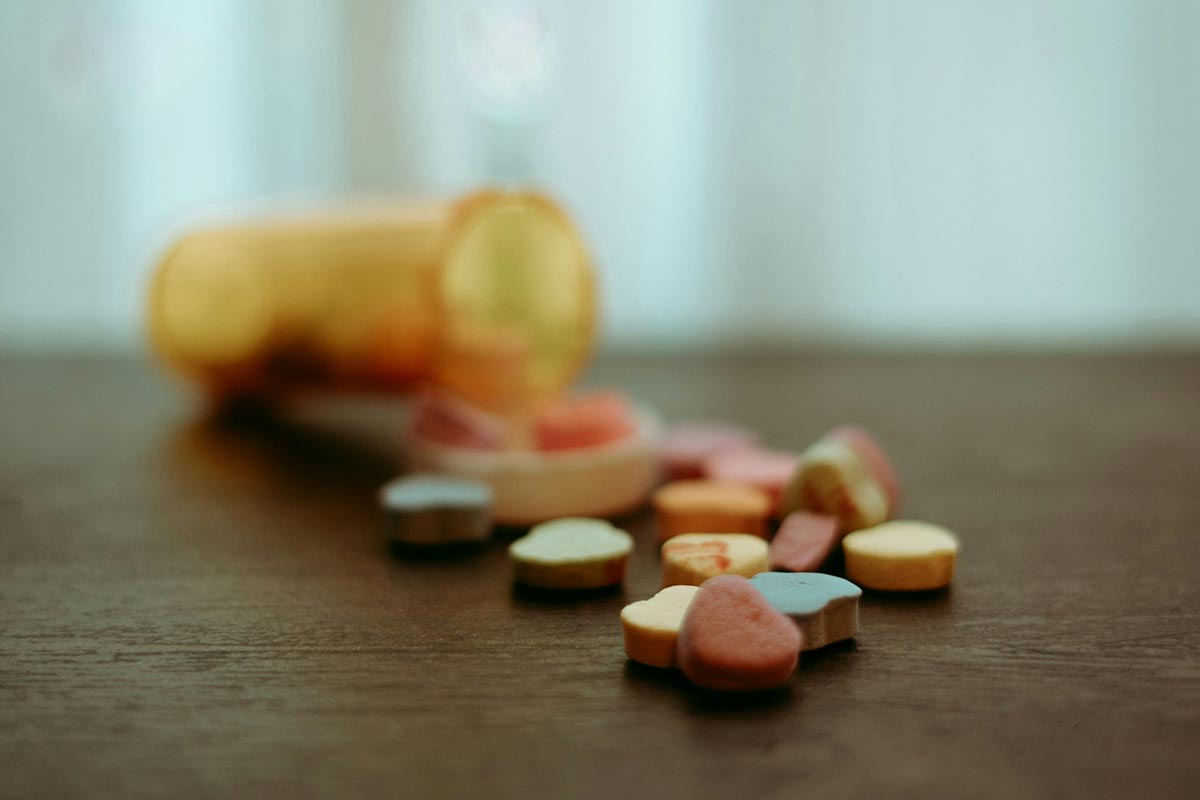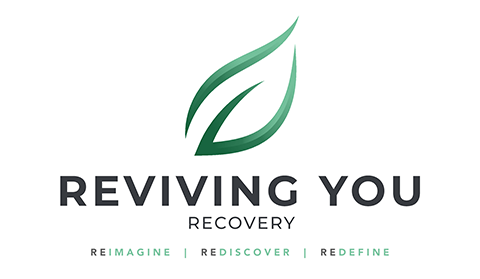How Do I Know If My Drug Use is Recreational or a Problem?

For many people, the line between recreational drug use and addiction can be blurry. You might find yourself wondering, Is my use still casual—or is it turning into a serious issue? Whether you’re using socially, occasionally, or more frequently, asking this question is already a strong sign that you’re becoming aware of patterns in your life that may need attention.
At Reviving You Recovery, we know how difficult it can be to evaluate your own drug use objectively. This article is here to help you better understand the difference between recreational use and problematic substance use, the warning signs of addiction, and what steps to take if you’re unsure where you stand.
What Is Recreational Drug Use?
Recreational drug use typically refers to the occasional use of drugs in social or personal settings for pleasure, relaxation, or experimentation. It might involve using marijuana at a concert, taking a pill to enhance a night out, or experimenting with psychedelics once or twice. The key characteristic is infrequency and lack of dependence.
A person who uses drugs recreationally:
- Doesn’t feel compelled to use regularly
- Can stop without experiencing withdrawal symptoms
- Doesn’t use drugs to cope with emotional pain or life stressors
- Doesn’t experience negative consequences from their use (e.g., legal, social, health, or financial problems)
But here’s the tricky part: drug use doesn’t always stay recreational. What starts out as occasional can easily slip into more frequent, risky, or dependent behavior—especially with substances that are highly addictive.
When Does Recreational Use Become a Problem?
Many people don’t recognize that their drug use has shifted from casual to problematic until they’re already facing serious consequences. The transition is often subtle. It can begin with using more often, needing higher doses to feel the same effects, or using drugs to numb difficult emotions.
Ask yourself:
- Do you find yourself planning your day around when or how you can use?
- Are you using drugs to avoid stress, sadness, or anxiety?
- Have your responsibilities or relationships suffered because of your use?
- Do you continue to use despite negative consequences?
- Have you tried to cut back or stop, but couldn’t?
If the answer to any of these questions is “yes,” your drug use may no longer be recreational.
Key Differences Between Recreational Use and Problematic Use
Let’s break it down further with some side-by-side comparisons:
| Recreational Use | Problematic Use/Addiction |
| Occasional or infrequent | Frequent or daily use |
| Used in social or celebratory settings | Used to cope with emotional or psychological pain |
| Easy to stop or control | Loss of control over usage |
| No physical or mental cravings | Strong cravings or withdrawal symptoms |
| No significant consequences | Negative impacts on health, relationships, work, or law |
| Doesn’t interfere with daily life | Interferes with responsibilities and personal goals |
These differences can serve as a mirror for reflection. Being honest with yourself is crucial.
Warning Signs That Drug Use May Be a Problem
Even if you think your use is under control, certain signs may suggest it’s headed in a dangerous direction. Common red flags include:
1. Increased Tolerance
You need more of the substance to achieve the same high. This is a physical sign that your body is adapting, which often precedes dependency.
2. Withdrawal Symptoms
Do you feel sick, anxious, irritable, or depressed when you try to stop using? This indicates your body has developed a dependence.
3. Neglecting Responsibilities
Missing work, school, or family obligations to use or recover from using is a major indicator of problematic use.
4. Risky Behavior
Driving under the influence, mixing substances, or engaging in unsafe sexual practices are signs that drugs are impairing your judgment.
5. Secrecy and Lying
If you find yourself hiding your use or lying to others about it, that’s a sign of shame and an internal awareness that something isn’t right.
6. Failed Attempts to Quit
Repeatedly trying to cut back or stop without success can be frustrating and frightening—and is one of the strongest signs of addiction.
The Role of Denial
One of the hardest parts about identifying a drug problem is denial. It’s easy to say, “I can stop anytime,” “I’m just having fun,” or “I’m not as bad as other people.” These thoughts protect us from painful truths, but they also delay healing.
If you’ve ever found yourself comparing your use to others who are “worse off,” that might be denial talking. Addiction isn’t always dramatic or obvious. It can be a slow decline that eventually takes a major toll.
Get Your Questions Answered Now
The Impact of Different Drugs
Not all drugs carry the same risk for addiction. For example:
- Opioids (like heroin or prescription painkillers) are highly addictive, even after just a few uses.
- Cocaine and methamphetamines can lead to dependency quickly due to their intense euphoria and short-lived effects.
- Marijuana is generally considered less addictive, but daily use can lead to psychological dependence.
- Psychedelics are less likely to cause addiction but can still trigger mental health issues if used improperly.
Regardless of the substance, the key issue is why and how often you’re using.

When to Consider Professional Help
If you’re beginning to feel concerned about your drug use—or someone else has raised concerns—it might be time to talk to a professional. You don’t have to hit “rock bottom” to seek help.
You should consider reaching out for support if:
- You’re unable to stop or control your use on your own
- Your relationships, job, or academic performance are suffering
- You’ve experienced legal or financial issues due to drugs
- You feel ashamed, anxious, or depressed about your use
- You feel physically or mentally unwell when not using
At Reviving You Recovery, we specialize in helping people at all stages of substance use. Whether you’re uncertain, ready to quit, or somewhere in between, we can help you explore your options in a judgment-free, compassionate environment.
How Treatment Can Help
Deciding to get help doesn’t mean you’ve failed—it means you’re taking control.
Our programs at Reviving You Recovery are tailored to meet your individual needs and may include:
- Medical detox for a safe and supported withdrawal process
- Inpatient or outpatient treatment to help you build a strong foundation for recovery
- Therapy and counseling to address the emotional and psychological drivers of your use
- Peer support groups to help you connect with others who understand what you’re going through
- Aftercare planning to help you maintain sobriety long-term
Treatment isn’t just about quitting drugs—it’s about healing, learning healthier ways to cope, and rediscovering joy and purpose in your life.
What If I’m Not Ready to Quit?
That’s okay. Many people aren’t ready at first. But being curious about your drug use is an important step toward readiness.
Try asking yourself:
- What role is this substance playing in my life?
- What am I avoiding or trying to escape?
- What could life look like if I didn’t need this drug?
- What support would help me make a change?
You don’t have to commit to treatment today. But exploring your relationship with drugs honestly and asking for information is a powerful start.
Supporting Someone Else
If you’re reading this because you’re concerned about a loved one’s drug use, know that your concern is valid. It’s often hard to watch someone you care about spiral into substance use, especially if they don’t think they have a problem.
Approach them with compassion, not judgment. Express your observations and concern in a caring way. Offer to help them explore resources or talk to a professional. And don’t forget to take care of yourself too—supporting someone with addiction can take a toll on your own mental health.
Final Thoughts: Trust Your Gut
If you’re asking yourself, Is my drug use really just recreational?, trust your instincts. That question alone shows a level of self-awareness that many people don’t reach until they’ve already faced serious consequences.
You don’t have to wait for a crisis to ask for help. You don’t need to lose everything to start over. Whether you’re just starting to feel uneasy about your use or you know it’s become a problem, there’s help available.
At Reviving You Recovery, we’re here to guide you through the uncertainty and into a place of hope, healing, and lasting recovery.
We Accept Most Insurances
We are in network with:









We know insurance coverage can be a source of uncertainty for people. We make sure you have all the information necessary. The great news is health insurance can potentially cover the total treatment costs. If you don't have insurance, we offer cash payment options for our treatment programs and are committed to working with clients regardless of financial situations.
